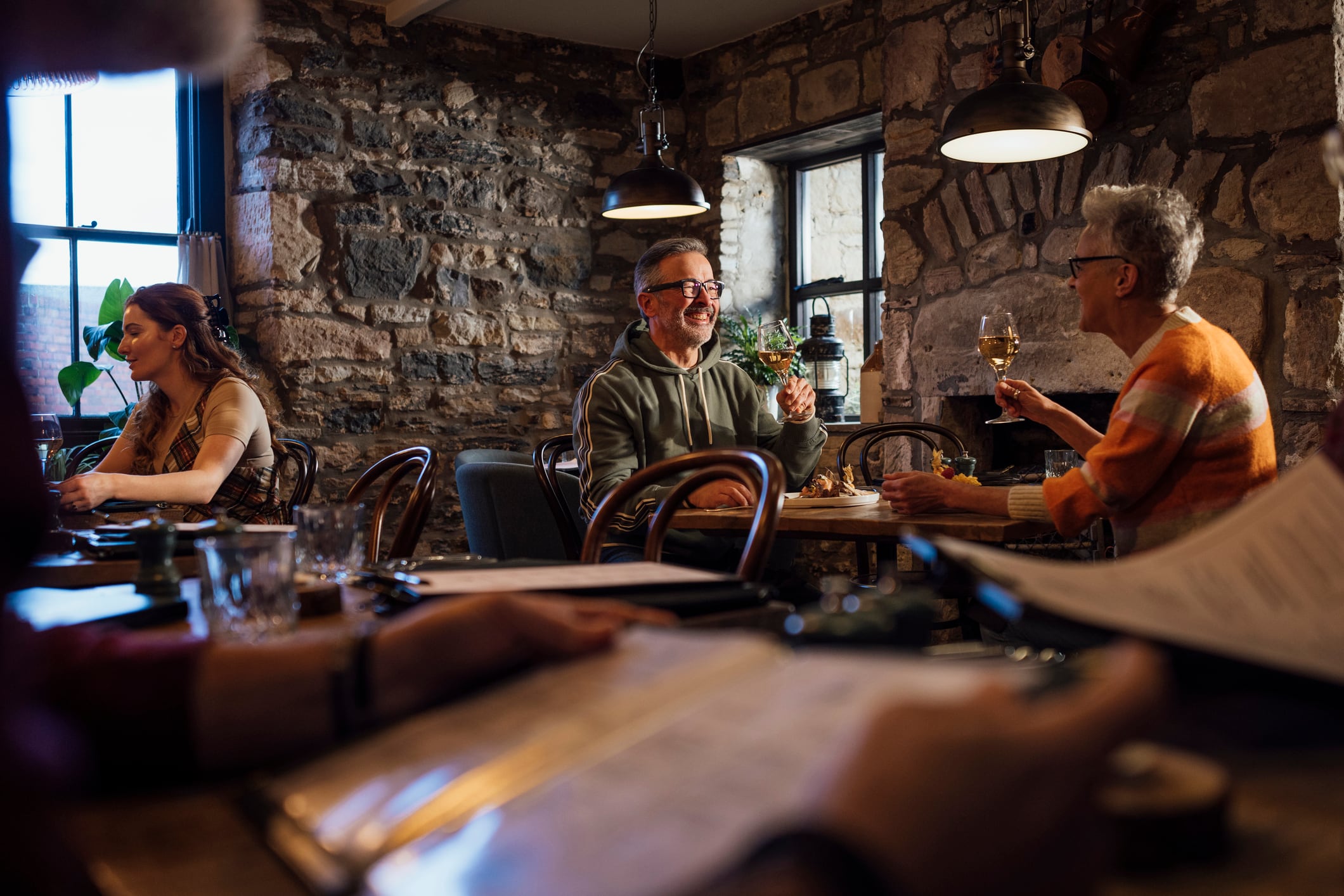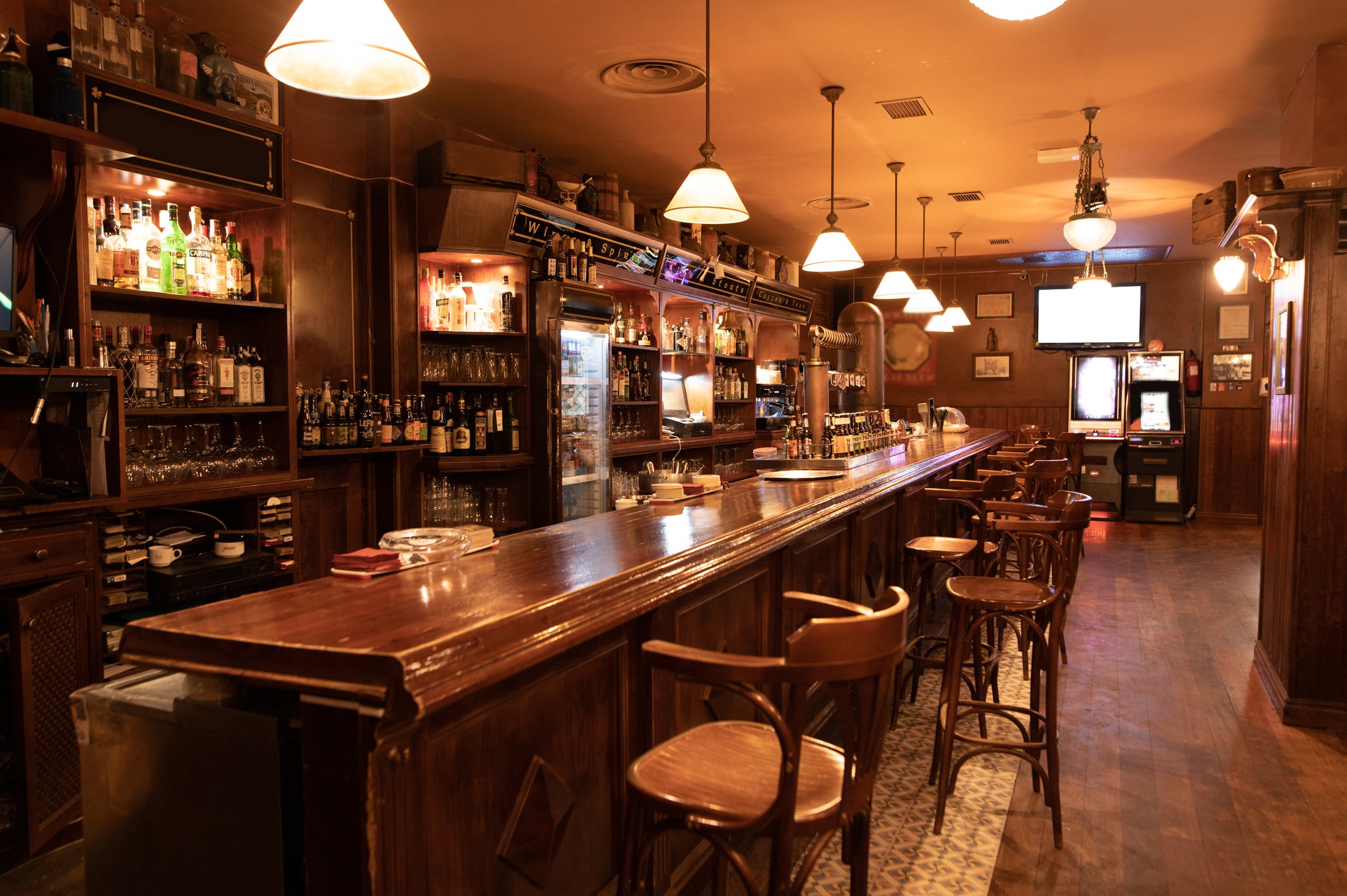Almost a third (31%) of pub operators reported a decline in footfall in the afternoons, according to figures from CGA by NIQ in its latest Business Confidence Survey.
This was a slightly higher proportion with evening (48%) however, late-night was the day part seeing the highest percentage decline in footfall at 74%, suggesting pub footfall is holding up better in earlier day parts but withdrawing from late night.
In response to this change in footfall later in the evening, further CGA by NIQ data suggested operators were shifting opening times with 6% of pub operators opening earlier and 42% closing earlier.
Further data from online booking firm OpenTable revealed consumers were eating out earlier in the evening with ‘early bird’ dining (between 4pm and 6pm) seeing a 13% rise year-on-year.
Moreover, some 44% of consumers were looking to make earlier dinner reservations this year.
Earlier this month (February) Loungers chairman Alex Reilley tweeted about booking a table for Valentine’s Day, outlining how he couldn’t book for between 5.30pm and 8.15pm but there was plenty of availability after 8.30pm.
He told The Morning Advertiser: “[It] feels like the pandemic may have accelerated the trend of eating earlier. Pre-pandemic, late-night drinking certainly felt like it was in decline but since the pandemic, people eating earlier in hospitality establishments feels like a major shift.
“It’s almost as if a consequence of the pandemic was people wanting to be home earlier where physiologically they feel ‘safe’ and that this is driving eating habits.”
Operators across the sector have been reporting this change in behaviour with later evening visits becoming fewer across the week.
Mark Bridgen, from Top 50 Gastropub the Dog at Wingham in Kent, was one of the operators who is seeing this shift.
Lack of demand
He said: “On the whole we’re seeing a keen early start, tables [booking] after 8pm are very rare Monday to Thursday, probably even Monday to Friday.
“We would love to be taking bookings for tables at 9pm but the demand is not there.”
While lunch service usually ends early afternoon, the Dog ensures there is a food offer for a little longer if customers request it, before dinner service begins.
“We now make sure lunch finishes at 2.30pm [while] snacks and sandwiches continue for longer, until about 4.30pm at the latest,” Bridgen added.
Punch Pubs & Co also reported seeing a significant shift in how people are visiting and using pubs, with earlier visits increasing in popularity.
CEO Andy Spencer said: “Guests are heading out earlier in the day, making the most of the experience but tending to go home earlier in the evening than they may have done in the past.
“Their spending habits and dwell times are evolving, reflecting a broader change in how new generations engage with the pub environment.”
He urged operators to continue to adapt and flex to market conditions and consumer behaviour.
Spencer added: “As a result, it’s crucial that, as an industry, we continue to diversify our offerings to ensure we remain relevant and competitive in local markets.
“By adapting to these changing behaviours, pubs can continue to thrive as vibrant community hubs that cater to evolving needs and inspire those special moments.”
The recent Lock In podcast also looked at the changing habits of consumers around eating and drinking out earlier.
Demographic widening
The Lock In team spoke to Incipio Group, which has always largely focused on the daytime crowd, rather than evening, hosting between 400 and 800 guests in its venues.
CEO Ed Devenport said: “Our focus has been to bring the nightclub earlier, bring everything that everyone loves about a nightclub like the dancing, partying, music, lighting, bring that to more of a daytime offering.
“What people still love that late-night experience but earlier in the day. We’ve done a lot of work to bring that forward. There are multiple things you need to think about when you’re doing that [such as] getting the lighting right, the music, the F and B offering.
“That started for us with the rise of bottomless brunches, can be associated with the drop off of nightclubs at the same time.
“People are moving [to] earlier but they want that same experience.”
Similarly, the UK’s largest pub company Stonegate Group, which has brands including Popworld, Be At One and Slug & Lettuce, has trialled various ways to adapt to consumers moving away from late night drinking.
This has been through widening its demographic further through hosting events during the day.
Marketing director James Metcalfe said: “It’s a high-tempo occasion that comes slightly earlier in the day.
“We’ve been looking at lots of different sorts of types of occasion in that space so at its most simple, a daytime disco so bringing forward a late-night, high tempo, high music occasion into the afternoon,
“We’ve also launched a programme called Little Ravers, which is a family afternoon rave in a Popworld, which has been going down incredibly well.
“We’ve had silent discos, sip and paint parties, brunches and we’ve just launched ‘Singo Bingo’ – a fusion of karaoke and bingo.”
While it’s clear consumers are choosing to eat and drink out earlier in the day, one thing’s for certain – operators are continuing to do what they’ve always done by adapting and flexing in order to cater for guests’ ever evolving needs.



